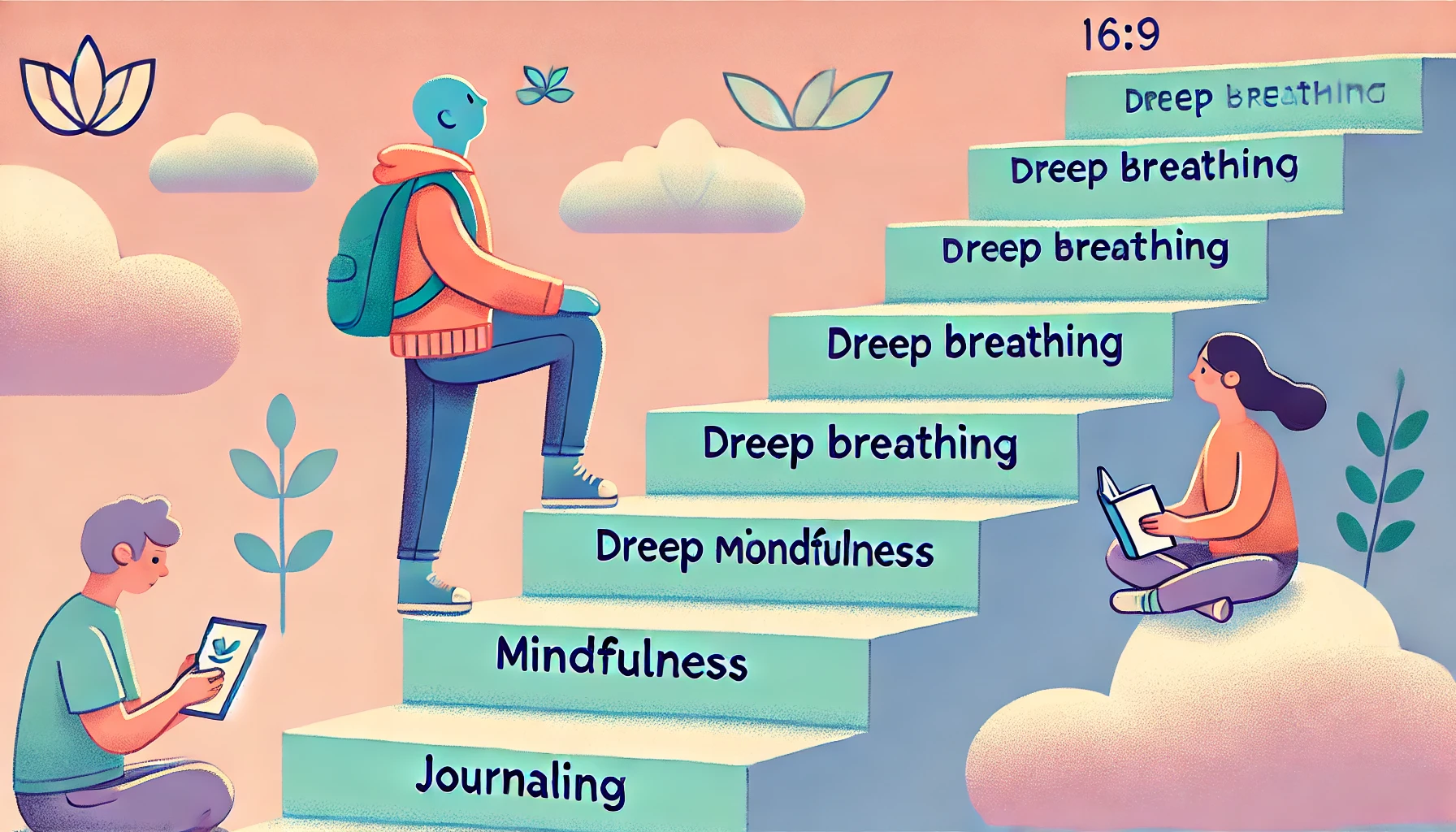In our fast-paced world, finding inner peace can seem like an elusive goal. The pressures of daily life often leave us feeling emotionally unbalanced and stressed. Param Gurudev’s teachings offer a beacon of hope, guiding us towards a state of emotional equilibrium and tranquillity. His profound insights into the interplay between past actions and present emotions provide a roadmap for those seeking to cultivate resilience and inner peace. This article explores these teachings and presents practical steps to manage emotions effectively.
The Connection Between Past Actions and Present Emotions

Achieving inner peace and emotional balance is a journey that requires self-awareness and disciplined practice. Param Gurudev’s teachings offer profound insights into managing emotions and cultivating a sense of calmness in our lives. This discourse delves into the significance of understanding the connection between our past actions and present emotions, emphasising the impact of karma on our current state of mind.
One of the core teachings is the relationship between past actions and present emotions. Our emotional responses today are often a reflection of the actions and decisions we made in the past. This understanding encourages us to reflect on our past behaviours and recognize their influence on our current emotional state. By acknowledging this connection, we can take steps to address unresolved emotions and move towards a balanced state of mind.
Practical Steps for Emotional Regulation

Param Gurudev emphasises the importance of emotional balance through the practice of slow and mindful breathing. This technique helps in calming the mind and controlling intense emotions. By slowing down our breath, we can bring our focus to the present moment, reducing the impact of negative emotions such as anger, jealousy, and envy. This practice not only aids in emotional regulation but also enhances our overall well-being.
The Power of Mindfulness in Managing Negative Emotions

A compelling story shared in the discourse illustrates the detrimental effects of unaddressed jealousy and envy. The story serves as a reminder of the importance of mindfulness and controlling negative emotions. By practising self-awareness and mindfulness, we can prevent these emotions from escalating and causing harm to ourselves and others.
The Role of Planning and Mindfulness in Daily Life

Practical steps to achieve emotional balance include planning and mindfulness in daily activities. By being mindful of our actions and their consequences, we can better manage our emotions and make conscious decisions that align with our goals. This proactive approach helps in mitigating the effects of past negative actions and fosters a sense of inner peace.
Controlling Emotions Through Slow Breathing
Param Gurudev advises practising slow breathing as a way to control emotions. When we slow down our breath, we slow down our thoughts and emotions, leading to a calmer state of mind. This practice can be particularly effective during moments of stress or anger, helping us regain control and composure. By making slow breathing a regular part of our routine, we can cultivate a habit of emotional balance and resilience.
Addressing Jealousy and Envy

Unaddressed jealousy and envy can have serious consequences on our mental and emotional well-being. In the discourse, Param Gurudev shares a story that highlights these effects, encouraging us to be mindful of these negative emotions. By recognizing and addressing jealousy and envy, we can prevent them from taking root in our minds and causing further emotional turmoil.
The Importance of Self-Discipline and Mindfulness
Self-discipline and mindfulness are crucial in managing emotions and achieving inner peace. Param Gurudev emphasises that through mindful planning and conscious decision-making, we can control our emotions and actions. This not only helps in maintaining emotional balance but also ensures that our actions are in harmony with our values and goals.
The Journey Towards Inner Peace

The journey towards inner peace requires continuous effort and practice. By understanding the connection between our past actions and present emotions, practising mindful breathing, and being mindful of our daily actions, we can cultivate a state of emotional balance. Param Gurudev’s teachings provide a comprehensive guide to achieving this balance, encouraging us to strive for inner peace and resilience.
Practical Exercises for Emotional Regulation
To help in managing emotions, Param Gurudev suggests several practical exercises:
- Slow Breathing Practice: Spend a few minutes each day focusing on your breath. Inhale slowly for a count of four, hold for a count of four, and exhale slowly for a count of four. This practice can help calm the mind and reduce emotional reactivity.
- Mindfulness Meditation: Set aside time each day for mindfulness meditation. Focus on your breath and observe your thoughts without judgement. This practice can enhance self-awareness and emotional regulation.
- Reflective Journaling: Keep a journal to reflect on your daily emotions and actions. Write about what triggered your emotions and how you responded. This can help in identifying patterns and making conscious changes.
Conclusion
Param Gurudev’s teachings provide valuable guidance on achieving emotional balance and inner peace. By understanding the influence of past actions on present emotions and practicing mindful breathing, we can manage our emotions effectively. This approach not only helps in emotional regulation but also contributes to our overall well-being, guiding us towards a more peaceful and balanced life. Through self-discipline and mindfulness, we can cultivate resilience and inner peace, making our journey through life more fulfilling and harmonious.





